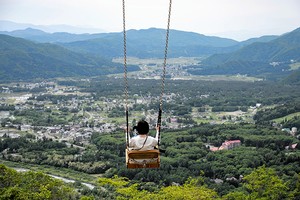By SEISHIRO IGARASHI/ Staff Writer
May 5, 2021 at 18:21 JST
 Hyogo Governor Toshizo Ido holds a news conference concerning the third state of emergency on April 21. (Ryo Takeda)
Hyogo Governor Toshizo Ido holds a news conference concerning the third state of emergency on April 21. (Ryo Takeda)
KOBE--Governor Toshizo Ido of Hyogo Prefecture signaled May 5 he will seek an extension to the 17-day state of emergency for the novel coronavirus pandemic that is set to expire May 11.
“Under the current infection situation, the tight situation at our hospitals will not be corrected,” Ido told reporters. “There is a high probability I will have to ask the central government to extend the state of emergency.”
Ido’s comment came a day after Osaka Governor Hirofumi Yoshimura said emergency curbs for his jurisdiction neighboring Hyogo would have to be extended.
A final decision in Hyogo will likely be made on May 7 at a meeting of the prefectural government’s task force handling the pandemic.
A third state of emergency took effect April 25, but Ido said it was too early to assess the effects of the measures since 14 days had not yet passed.
“I believe maintaining the measures now in place will be most effective because if they are lifted (too quickly), people might get the wrong impression that the situation is improving,” Ido said.
He added that he would consult with his counterparts in Osaka and Kyoto to ensure that similar steps are in place for all three prefectures.
The Hyogo prefectural government reported 331 new COVID-19 cases on May 5 and 13 deaths.
The ratio of hospital beds set aside for COVID-19 patients and currently in use hovers around 79 percent. There were 1,750 patients waiting to enter hospitals for treatment.




















A peek through the music industry’s curtain at the producers who harnessed social media to help their idols go global.
A series based on diplomatic documents declassified by Japan’s Foreign Ministry
Here is a collection of first-hand accounts by “hibakusha” atomic bomb survivors.
Cooking experts, chefs and others involved in the field of food introduce their special recipes intertwined with their paths in life.
A series about Japanese-Americans and their memories of World War II